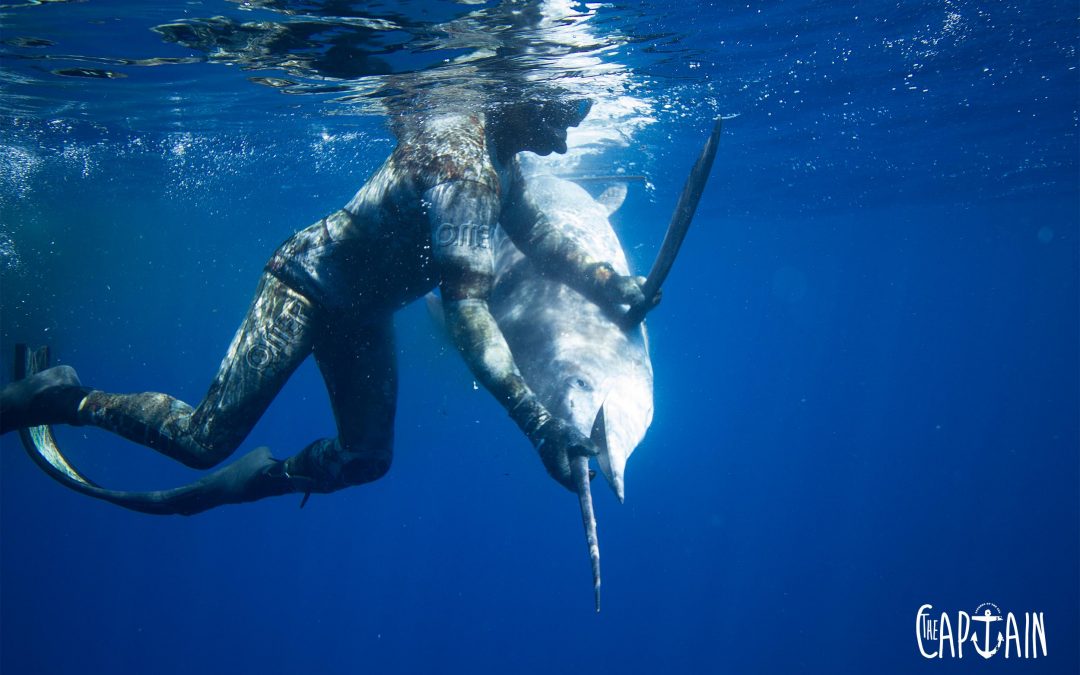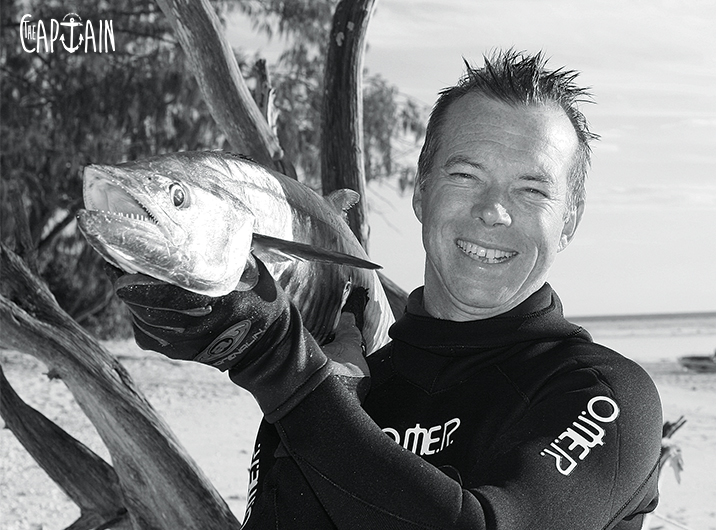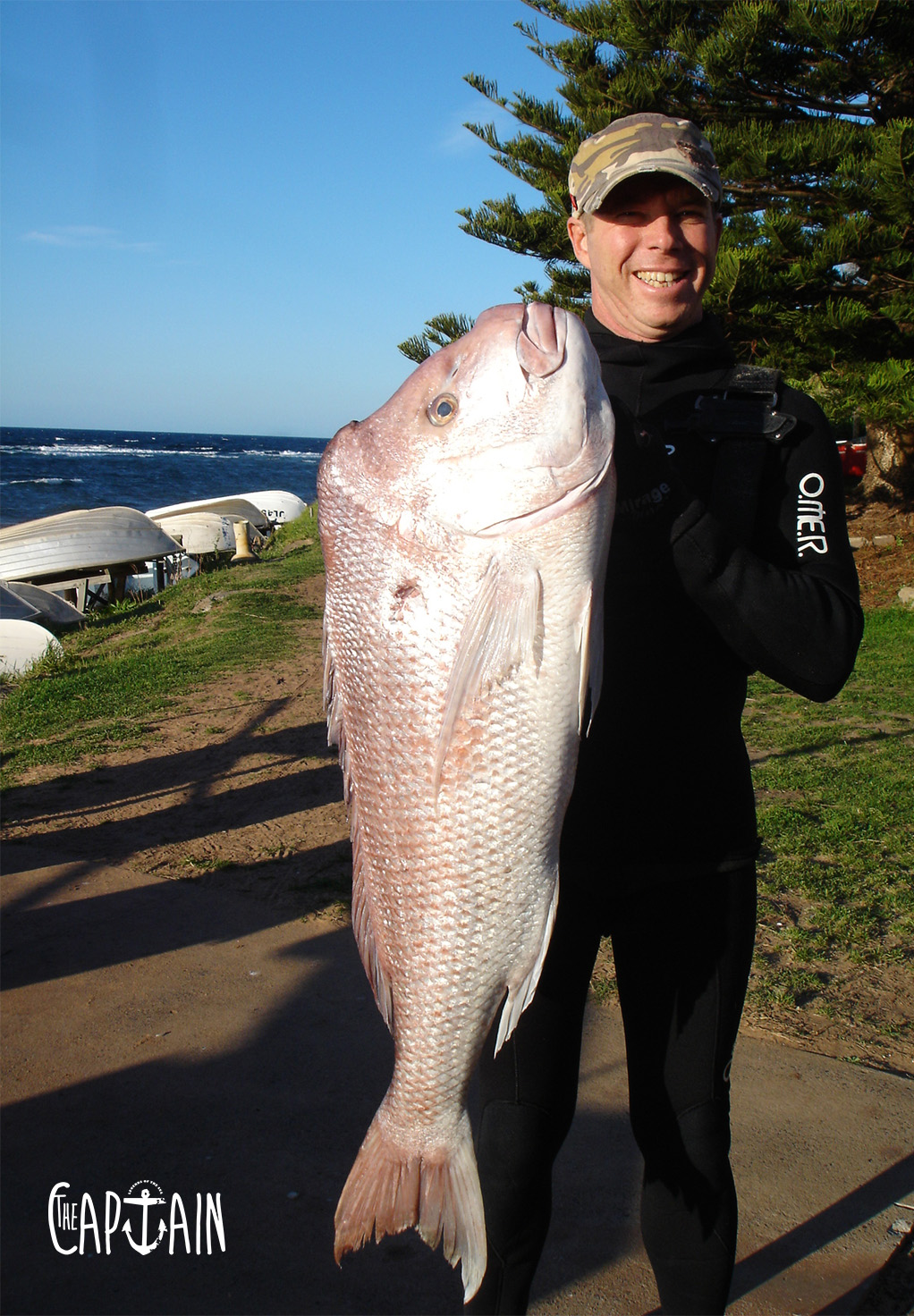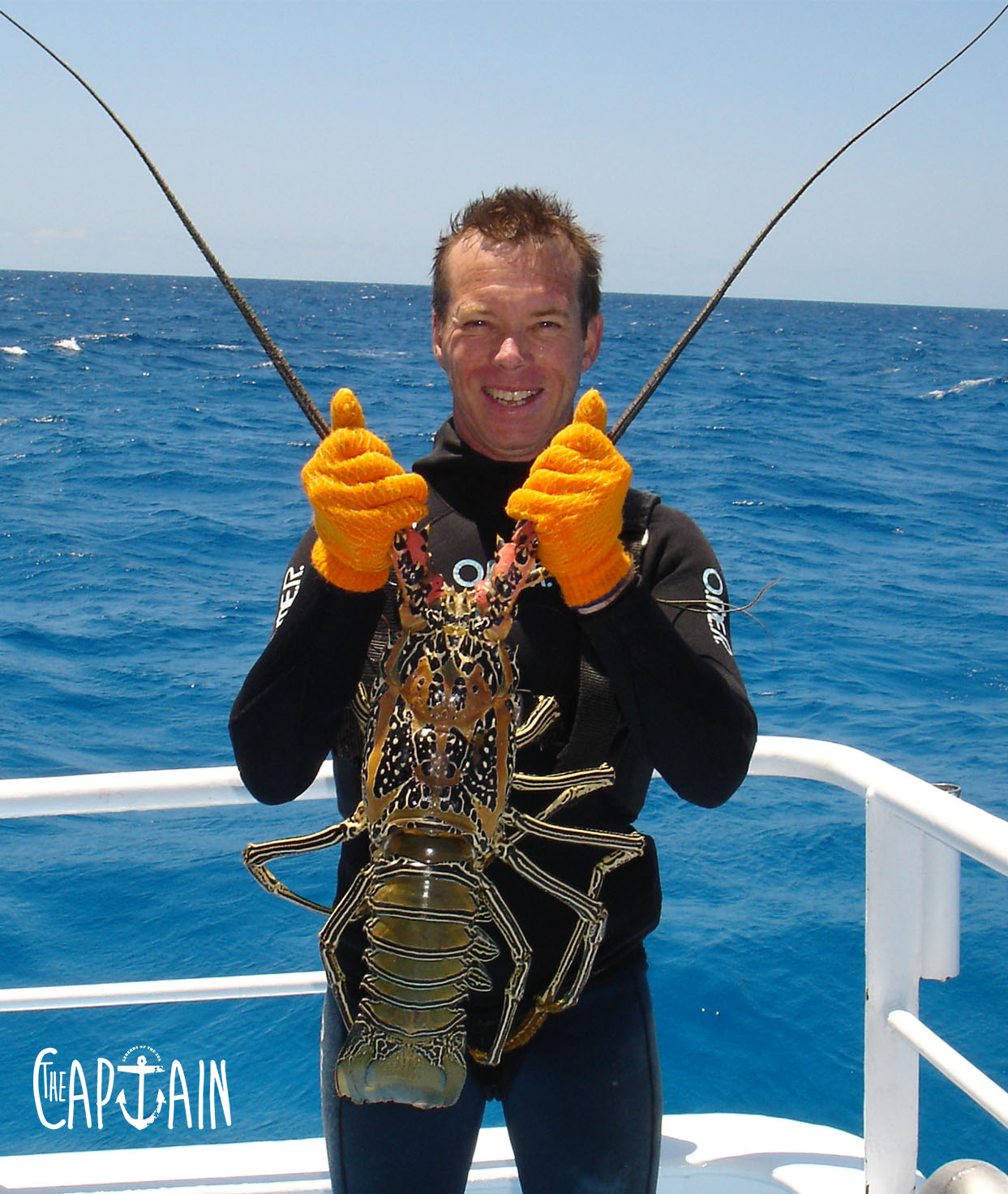Paul Miller is a natural in the water, but it wasn’t always that way. It took years to build up the confidence to jump in, then hours and hours to hone his craft. Paul shares the knowledge he wished he had when he started.
1) Learn from local fishermen
I used to think fishos and spearos were mortal enemies, but not anymore. I’m always asking fishos questions about species and bait – and what weather conditions bring them on. At my local reef, I learned from an old salt that big snapper feed in close after a big southerly. With that knowledge, I speared a 13.36kg snapper. The fish and I played cat and mouse for more than an hour in 12 metres of water. When I came up for air, he’d scurry out from cover and pick up the burley. I caught him off-guard by ascending halfway up then gliding back down for the money shot just as he engulfed a big chunk of luderick burley bait. But the fight wasn’t over – I had to elbow two bronze whalers away from the prize, both of them more than six feet long!
2) Sharks are shy, but be mindful you’re a guest in their backyard
Most beginners will never see a shark. In truth, I’m more scared of jet-skiers. Sharks are typically wary characters looking for an easy meal, not a fight with a foreign object. There are some basic rules to follow. Dusk and dawn are shark feeding time. Be wary around baitfish and always be 360-degree aware. A struggling fish is a dinner bell to a shark, so get your catch to the float or into the boat as quick as possible. I’ve speared and photographed thousands of sea creatures and spotted hundreds of sharks, so I guess I’m living proof that it can be done.
3) Break yourself in gently
Don’t expect to be a blue-water hunter from day one. Start at the shore in clean, shallow water where you have a ‘visual tether’, such as the shore or some seaweed, then build your confidence from there. Don’t be in a rush to dive into the deep blue – most of your prey is in the shallows, anyway. I’m amazed to watch rock or beach fishermen cast a million miles away from where the fish actually are. I’ve crawled onto rocks clutching a 30kg mulloway, landing at the feet of fishermen who look at me aghast. They are even more shocked when I tell them I speared it five metres from where they’re standing!
4) Soak it all in
Don’t feel like you need to take something from the ocean to have a good dive day. Diving in the ocean is a privilege, so immerse yourself in the experience. Introduce friends to the sport. Replace your gun with a camera occasionally. Take a dive holiday. Instead of going for ‘yet another kingfish dive’, maybe collect a few other experiences, such as diving with sunfish, seals or dolphins. Treat a dive like a therapeutic workout and you’ll never be disappointed.
5) Train for the dangers
Let’s face it, free diving is an inherently dangerous sport. My biggest fear is blacking out underwater. Other dangers are hypothermia, getting lost at sea, sharks and boat traffic. Being fit will increase your awareness and help maximise your diving experience. It may even save your life! Here are a few tips I’ve learned in relation to health and safety. Dairy products will give you mucus and won’t help with your equalising. Stay hydrated – when you’re dehydrated it’s hard to equalise and your tongue and throat become dry. Keep a water bottle on your float.
Develop the right habits at the start. Obviously, holding your breath is the biggest skill. There are excellent courses to steer you in the right direction. Your best friend is common sense. Look for danger signs. Don’t take unnecessary risks and don’t feel the need to dive as deep as you can. Most of my fish were caught diving in 10-12 metres of water!





Recent Comments